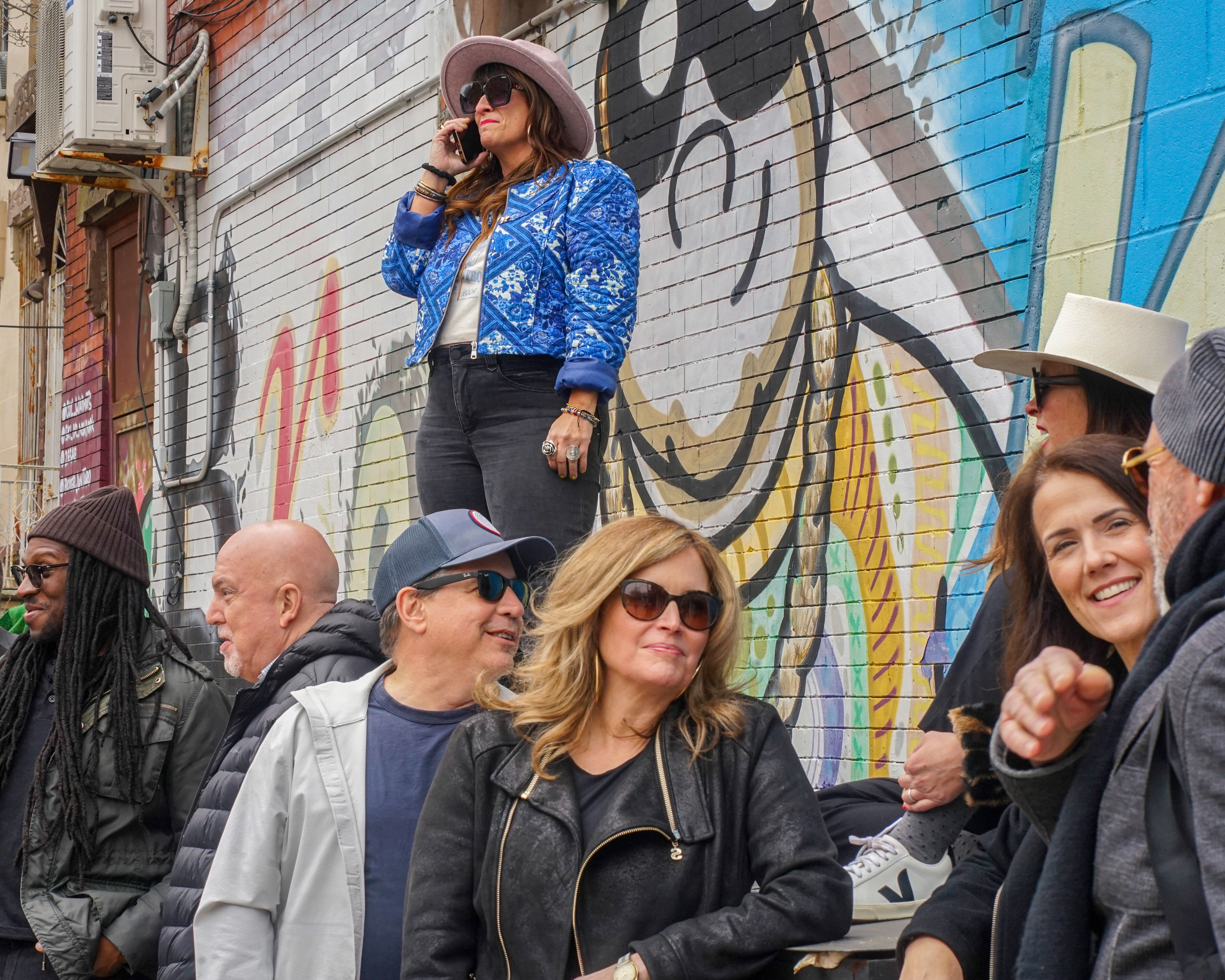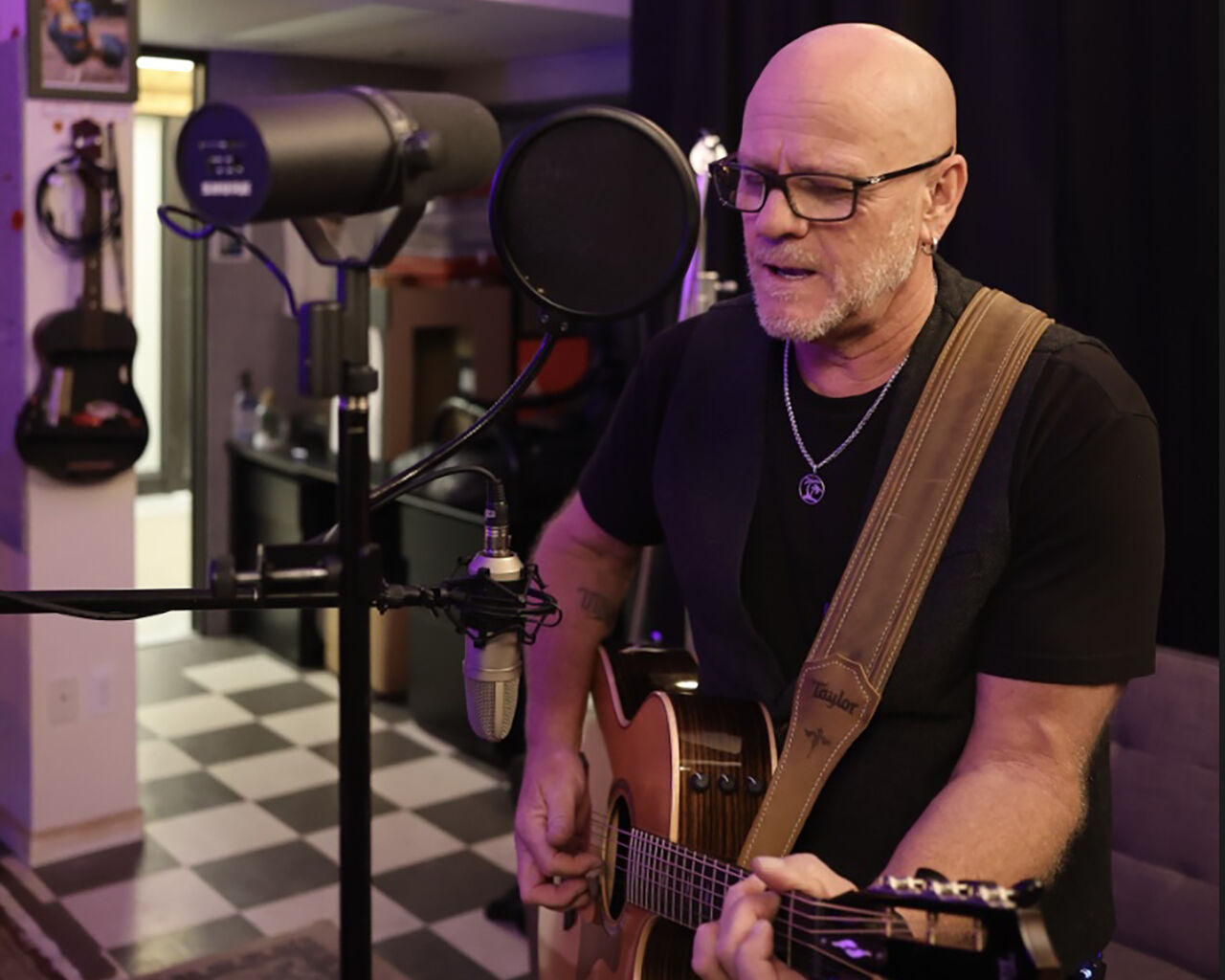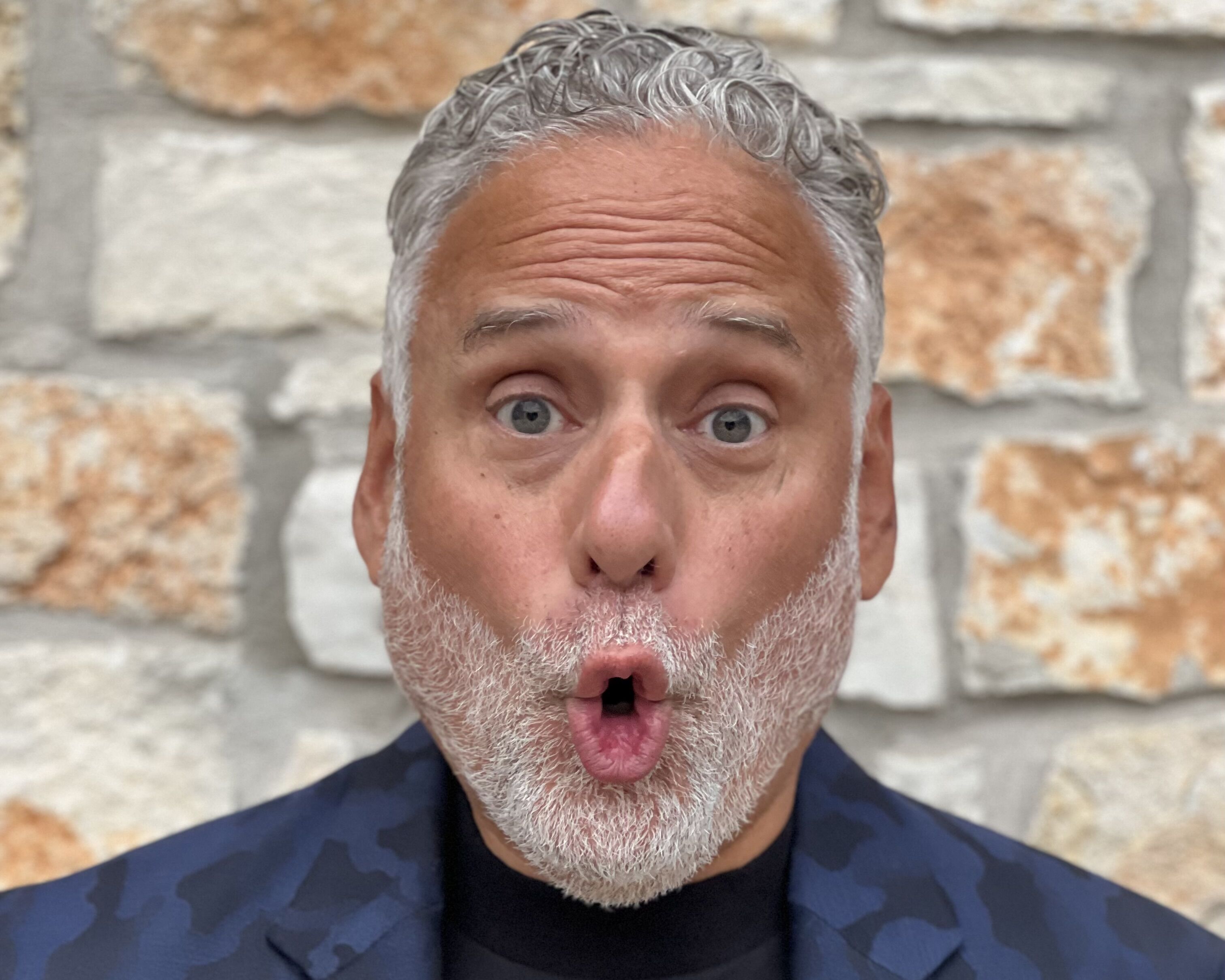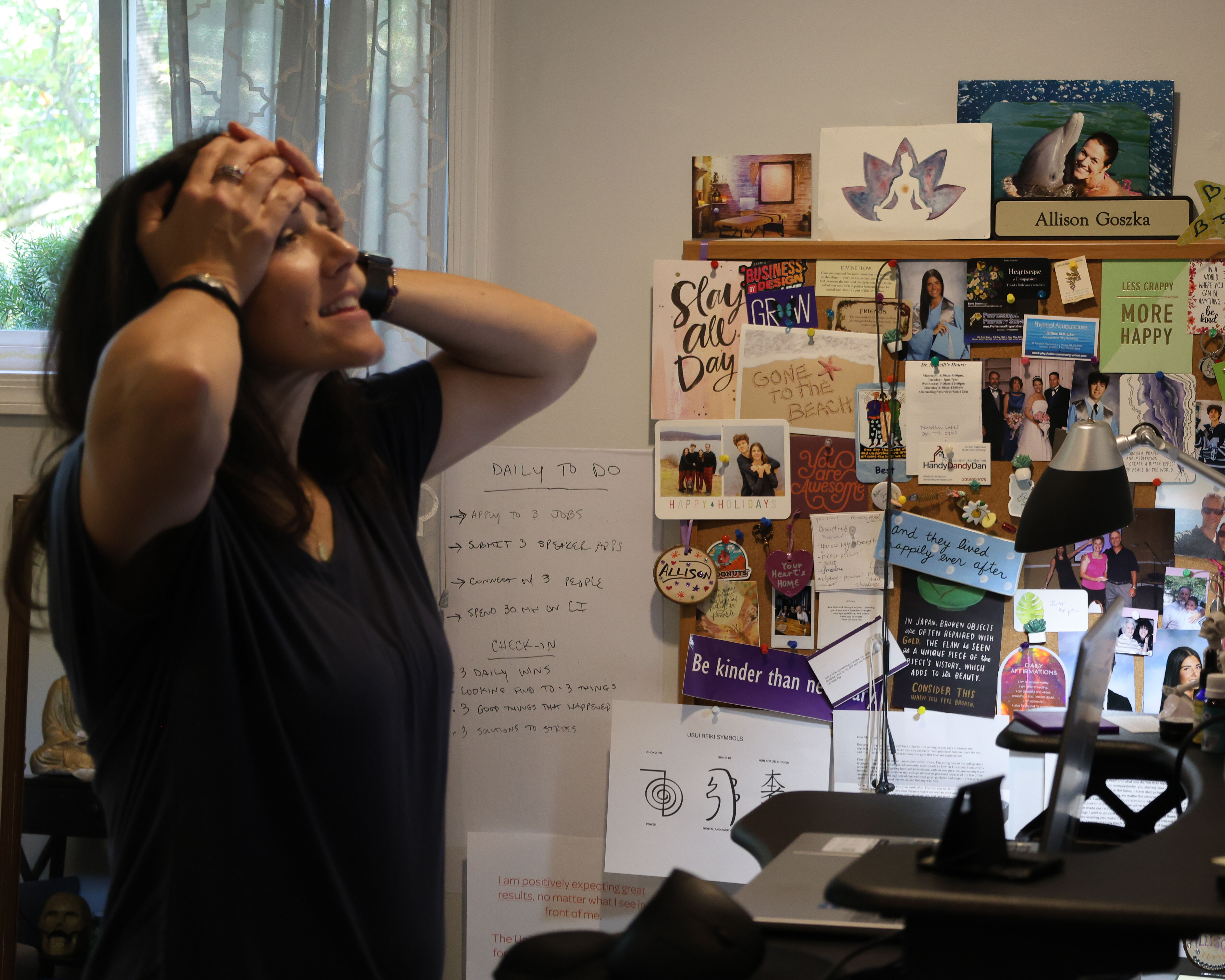Did you know that the actors in both the 1991 movie “Father of the Bride” as well as those in “Ticket to Paradise” in 2022, were all playing protagonists around 50 years old? If you’re middle-aged today, you were likely in your teens in 1991, like I was. And, in my teen mind, I thought those characters seemed old and boring. Well, the joke’s on me because now here I am in that phase of life. I don’t want to feel old and boring. Sure, some days I see more gray hair, wonder how I tweaked some body part simply sleeping the wrong way, or remember I really shouldn’t have a glass of wine past a certain hour if I don’t want my sleep interrupted. Ugh! All of this reminds me I’m aging. However, at the same time, I’m embracing it.
Ch-ch-ch-ch-changes
It’s no secret that mid-life entails a lot of change. The key is how we embrace those changes. The lyrics from the Rolling Stones “You Can’t Always Get What You Want” have been stuck in head. “No, you can’t always get what you want. You can’t always get what you want. But if you try sometime, you’ll find, you get what you need.” In some ways this applies to mid-life. Physical, mental, and emotional health in mid-life certainly aren’t what they were at 25. In some ways this is super frustrating. Why, if I’m doing the same things I did in my twenties, with regard to diet and exercise, aren’t I getting the same results? Why does it feel like many things take more effort? My friend, Susan, can relate. Having always been a runner, Susan still runs, but notes she’s now slower and more prone to injuries. Additionally, friends have had weight gain even doing the same things they’ve always done. Susan has brought in weight training but isn’t seeing the results for which she’d hoped. Lately, my friend, Amy S, has felt the physical effects of aging too. She described her summer as the summer of surgeries for her family and friends. Her dad and husband had knee surgery and friends had other surgeries too. When I inquired to what she attributes this, she stated, “I think it’s because we’re still trying to do things like we did when we were 25 and we’re not 25 anymore.” That’s for sure. While it’d be nice to reclaim some parts of my life at age 25, would I really want it all?
At 25 would I have had the wisdom, life experience, and confidence to take on some of life’s decisions that face us in middle age? Would I have made the same choices? Maybe not entirely. Would I have regretted anything? No, because each of our experiences serve to teach us something. Does that mean we all have it figured out by now? Nope. A common refrain I hear from middle-aged job seekers is, “When I figure out what I want to be when I grow up.” Whether you look at that as a weight, a gift, or both is entirely up to you.
While change hasn’t historically been my strong suit, I’m doing my best to embrace the possibilities. And so are a lot of others.
Charting a path
If there were a prize for navigating the greatest amount of change in the shortest amount of time, it’d have to be awarded to my friend, Laura. She and her family have spent the last year traveling the world. Talk about change. They’ve uprooted much of what was familiar in their daily lives. Transportation, shopping, food prep, work, school, and more are all things they’ve had to learn to navigate differently. However, she says, “At the root, the experience is the same as any change or move. Granted, this experience has involved change on steroids.” She explained how her family had to learn to let go of life before in order to move forward and it’s been both difficult and rewarding. She went on to say, “Transition isn’t just about a change, but the PROCESS, including determining what we want.” Yep. That’s the key.
It struck me how talking to people all over, experiencing both different and similar situations, what we all have in common is figuring out how to best navigate the process. Said differently, it’s not about the destination, but the journey. My friend, Jen G, approaching her sixties, is a great example of embracing the journey with open arms. She recently went back to graduate school to earn another degree in mental health counseling. She realized she has a lot of great years still ahead and was drawn to this for both the fulfillment and flexibility it provides. She said she personally was never someone who thought, “What will I do in retirement?” She feels there’s so much from which to choose. She shared that many friends in their sixties are taking a similar approach to retirement, doing all sorts of different things, like flexible work and volunteer work as opposed to straight retirement. Retirement looks different than it did for our parents. People are living longer so are both needing, and hopefully able, to work longer. For Jen, feeling productive makes her feel content. I think she’s on to something. We’ve learned it’s best to be productive, rather than solely leisurely, as the former leads to feeling more fulfilled and healthier.
Other friends are choosing their next steps intentionally too. My friend, Amy C., always knew the importance of self-care, but recently has made a shift in her own life and begun focusing on this more. Always driven and high-achieving, previously, Amy devoted a lot of her energy outward. Always healthy and active, she says, “It was a wakeup call, during physicals, to hear things like, ‘Your cholesterol is high and your brain fog isn’t dementia.’” Group all of this with caring for aging kids AND aging parents, the time and energy all this requires, and it’s easy to see why we feel stressed and tired. Feeling this, Amy says, “It’s different to manage a different kind of work/life balance and decide how to get the most out of it and not sacrifice my health at the same time. It’s been a mindset shift from hustle, hustle, hustle to what it looks like to live longer and what I want it to look like.”
Empty nest
Empty nest syndrome is another fact of life parents in mid-life face. And, another area where we get to decide what we want it to look like. The common denominator is that it’s hard; the rest varies. My friend, Amy S, got to kind of warm up to this. Her two children are close in age, and her husband travels a lot. Therefore, she experienced a bit of an empty nest in stages, experiencing it in small doses when her kids and husband would all be out of the house at the same time. Amy found this gradual exposure a bit easier to swallow, but also recognizes that any transition is hard and that it’s different from family to family. While for her, the change was bigger and therefore more difficult when her first child left, for friends, it was harder when the baby left and the nest was truly empty of children. My friend, Jen, who I previously mentioned went back to graduate school later in life, isn’t yet sure how she’ll react to an empty nest. She had kids in her forties so now she’s closer to retirement at the same time she’ll be an empty nester. She has one child in college now, but nearby and her younger children are twins so their house that went from three to two children at home, will next go from two to zero. Earlier, I alluded to how feeling productive can increase feelings of contentment. Jen’s new career provides this along with her outlook of excitement about what’s going to be next.
I asked her what general advice she could share about approaching this stage of life and she had some sage words of wisdom. “Find something you love to do, whether it’s work, or just a passion. The empty nest phase is a natural time of life. We must let our kids launch and they’ll be more successful if we let go. Hopefully, we’ve done our job and kids know they can fail when it’s safe to fail. When they do so in a bigger way, they’ll have the tools to get to the other side.”
New possibilities
With the empty nest stage of life also comes differences in one’s romantic relationships. Amy S. laughed that one advantage is getting to eat the meals the adults want and not having to cater to kids’ tastes. On a more serious note, she shared that she and her husband are growing closer through deeper conversations about more than just kid’s schedules. There are adjustments, but also opportunities for deeper connection. On the adjustment end, if you’ve shared responsibilities prior to becoming an empty nester, it’ll likely be easier to do so when entering this stage. Suddenly having a different expectation from the way things ran for years prior, isn’t going to go over well. Nailing this balance can aid in connection, as can genuine interest. After his surgery, Amy’s husband was at home for three months to recover. This meant a lot of time together. She said it was nice. “We got to really talk and invest in what’s going on in each other’s lives. There’s more time now that managing kid’s schedules isn’t a part of daily life anymore.”
While following empty nest syndrome, some of us are rediscovering romance with our long-term partner, others are rediscovering love with a new partner. My friend, Ally, who’s remarried, shared, “Modern dating and later stage romantic relationships are so different from how things were in my twenties. From everything like new ways of connecting, through things like dating apps, to thinking about things like being seen naked and sharing a bathroom at forty five or older versus twenty five, is scary.”
If you’re a parent, dating with kids in the picture is another obstacle. The frequency you can feasibly see each other romantically is clearly much different than during your twenties. It’s hard to manage all the things simultaneously. Ally shared, “I had to find someone willing to accept my boundaries including when it was the right time to introduce them to my children, how my previous partner may react, and more. A lot of compromise is involved.”
Connection
Wouldn’t it be nice if mid-life came with an instruction manual? While I’ve yet to find one, I have stumbled on the critical piece—connection. Laura noted this difference between America and other countries and other friends have echoed similar sentiments. Laura stated, “We need a village, without judgement.” She’s been fortunate to see this. While getting a haircut in Albania, a stream of women walked in and out of her hairdresser’s studio, like they were in her home. Rather than being an annoying interruption, Laura observed how these women received and related to each other so warmly. Even though Laura couldn’t understand what they were saying, as they were speaking a different language, she could tell they cared deeply for each other. It was so different from the stereotypical five minute ‘How are you?’ superficial
American greeting that’s more of a formality than a genuine question.
The way we live in the U.S. is more isolated and I’d argue it’s unhealthy. The longest study on happiness, the Harvard Study on Happiness, found connection to be the greatest factor in happiness. Maybe that is the key to a more fulfilling and healthy life in middle-age and beyond. Not a pill, not a shiny new car that’s a result of a mid-life crisis. Not a better job, bigger house, bigger paycheck, or anything bigger, but our openness to genuine connection. How simple and how refreshing. It won’t cost you anything to consider, but could cost a lot not to.
Finding Peace
Reflecting on life’s journeys and lessons, I’m starting to understand that everything happens for a reason. I can’t say the reason is always immediately clear, but eventually it becomes apparent. Middle age is unsettling in many ways. Some, like grey hair, wrinkles, and a changing body were to be expected. Not welcomed exactly, but expected. Others, like changing relationships, family changes, career changes and planning for retirement? Those have taken me for a bit of a loop and are harder to accept and navigate. So how am I navigating it all? I’m still figuring it out. The good news? People are starting to talk about all of this! Phew! What midlife looks like isn’t a one size fits all type of thing. That’s a good thing. There will be moments when navigating everything will feel like fighting a storm. But, between the waves, there will be calm. That’s where I’m finding peace. I’m making time for the things I know refuel me. Because then I can show up my best self and feel calm. For me, those are the moments that bring clarity, forward progression, and peace. Whatever it is for you, we’ve got this.
Placeholder copy and intro of Jen.
Share this Article!
More Articles





